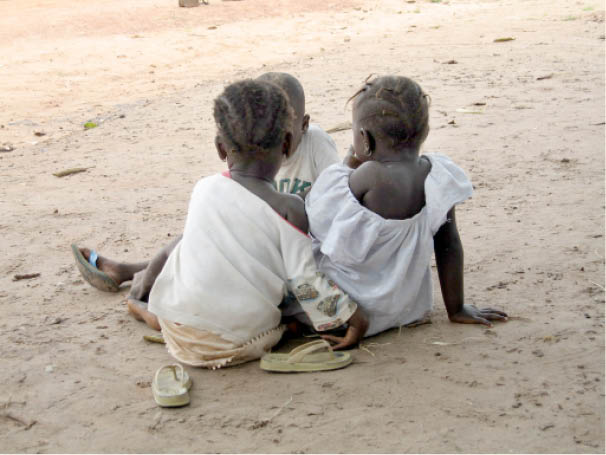The science behind “doti no dey kill African man” – and what can go wrong
When your toddler gets down and dirty on sand or comes home plastered with mud, do you freak out? Sure, the thought of washing would give you concern but do you worry about germs, disease? “Doti no dey kill African man” is a buzzword that quite catches common attitude. “Doti” here can be anything from […]

When your toddler gets down and dirty on sand or comes home plastered with mud, do you freak out?
Sure, the thought of washing would give you concern but do you worry about germs, disease?
“Doti no dey kill African man” is a buzzword that quite catches common attitude.
“Doti” here can be anything from dirt and germs to outright disease. Well, it turns out there’s some science behind the notion. And it is all about immunity and susceptibility.
“The concept of immunity can be very funny,” said Dr Inyang Asibong, a public health physician and former health commissioner of Cross River.
“The more you are exposed to something—an infection—the more you develop immunity to it. And the more the next time you have that infection, you are stronger, it doesn’t bring you down.”
That explains why you get cough and cold every now and again, and throw them off, even without medication.
“But it can be two ways, just like an allergy,” said Asibong.
“The more you are exposed to an allergen, the more it builds up and the more it is likely to kill you with the next onset.”
That is the situation “doti” overwhelms the body’s defence system—when susceptibility overtakes immunity.
“You rarely hear of adults dying of malaria because we develop immunity to malaria,” says Asibong. That explains why more children than adults die from the disease.
Children play on the ground, eat and play with dirt.
“Our body is well used to it. It is very difficult for an infection to get to us. Many people in other climes cant even try it, Asibong explains.
But in there lies a major fault in common approach to basic hygiene, and it underlines how the message is passed to Nigerians.
“These people have been living like this. It is very difficult to go and tell that person, ‘wash your hands with soap,” she adds.
“There is something funny we do as African. This handwashing thing. Nobody ever washes their hand with soap before eating. It is only after eating. Why? Meanwhile, you have touched all kinds of things and this is the hand you are taking into your mouth, with food. But you can never see us washing hands with soap before eating. Because, doti no dey kill African man.”
